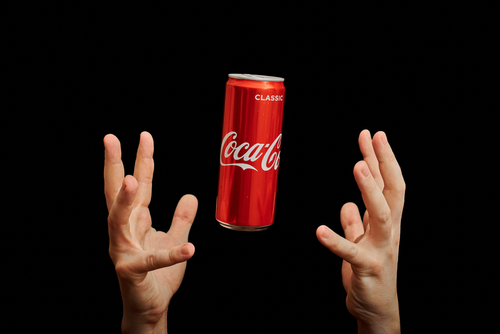With over 70,000 cans recalled in Texas due to metal contamination, Americans are once again confronted by the consequences of lax oversight and recurring failures in corporate and regulatory accountability.
Metal Contamination Spurs Statewide Recall of Iconic Brands
In October 2025, Coca-Cola Southwest Beverages, LLC, a regional bottler, voluntarily recalled over 70,000 cans of Coca-Cola, Coca-Cola Zero Sugar, and Sprite distributed across Texas. The recall, prompted by the discovery of metal fragments in certain cans, affected products sold in the McAllen/Rio Grande Valley and San Antonio regions. The U.S. Food and Drug Administration (FDA) classified this as a Class II recall, denoting a moderate health risk that could cause injury if contaminated products were consumed. Although no injuries were reported, all affected cans were removed from shelves by October 10, demonstrating the seriousness of the threat to consumer safety.
The recall was not an isolated incident but the latest in a troubling series of quality control failures by one of America’s most recognized brands. Earlier in 2025, Coca-Cola faced similar crises—one involving plastic contamination in Illinois and Wisconsin, and another triggered by elevated chlorate levels in Belgium, Luxembourg, and the Netherlands. These repeated recalls expose vulnerabilities in manufacturing and oversight that should alarm anyone concerned with the integrity of the nation’s food supply. The swift action by the company and regulatory agencies may have mitigated immediate harm, but it cannot mask the broader pattern of recurring lapses.
Regulatory Response and Growing Public Scrutiny
The FDA’s prompt classification and public notice on October 20 signaled increased vigilance following this latest recall. Coca-Cola stressed its commitment to consumer safety, urging customers to return or discard affected cans and offering refunds or replacements. Yet, this episode has intensified scrutiny of both corporate practices and the effectiveness of federal oversight. Many Americans, especially those frustrated with years of regulatory overreach and government inefficiency, see these incidents as proof that bureaucratic systems often fail to prevent threats before they reach the public. The absence of reported injuries this time does not erase the underlying risk or the erosion of trust.
How do bolts and pieces of metal etc get into food? We got this question a bit after the veggie burger recall , and now with this new Coca-Cola recall – thought we should just answer it with a post.
A: Of course all things are possible – but a typical route is an equipment… pic.twitter.com/csn4iUDc3U
— Iwaspoisoned.com (@iwaspoisoned_) March 26, 2025
Food safety experts have weighed in, emphasizing that even moderate contamination events can have significant health implications. The recall process, although completed efficiently, highlighted the need for transparent communication and rigorous preventive protocols. Conservative voices may rightly question why such problems persist despite countless regulations and oversight bodies. If the system is designed to protect American families, repeated failures like these point to a deeper misalignment between regulatory promises and real-world outcomes.
Economic Fallout and Industry-Wide Concerns
The immediate economic impact of the recall was felt by Coca-Cola, its Texas bottler, local retailers, and distributors, all of whom faced disruption and financial loss from product removal and refunds. More troubling, however, are the long-term consequences: eroded consumer confidence, potential for stricter regulations, and ripple effects throughout the beverage industry. As the recall comes amid a period of heightened scrutiny over food and beverage safety, it serves as a stark reminder that even dominant brands are not immune to oversight breakdowns. Americans who value personal responsibility and corporate accountability are left demanding answers and higher standards.
Industry analysts warn that these recurring incidents could prompt sweeping changes in quality control processes, regulatory enforcement, and even legislative action. The broader beverage sector now faces increased pressure to restore trust by demonstrating a commitment to rigorous safety and transparent reporting. For consumers, especially those in regions directly affected, vigilance remains essential. They are urged to check lot codes, report any concerns, and hold both corporations and regulators accountable for upholding the standards expected by the American people.
COCA-COLA RECALL 🚨
Thousands of cans of Coca-Cola, Coke Zero, and Sprite produced by a Dallas-based distributor are being recalled, the FDA reports.In an online notice, the FDA says the cans could have metal inside.
The products were distributed by Coca-Cola Southwest… pic.twitter.com/JvKIaxjJWQ
— Skeptic Nut🤔🥜 (@SkepticNut) October 24, 2025
Experts Call for Stronger Prevention and Accountability
Academic and professional commentary has underscored the importance of a transparent recall process and effective public communication. While some experts view the rapid response as proof of effective monitoring, others see it as symptomatic of deeper systemic flaws. The consensus among food safety professionals is clear: only robust quality control and genuine accountability can prevent future incidents. For conservatives, the Coca-Cola recall is yet another example of why vigilance, limited government that works, and a culture of responsibility—not endless bureaucracy—are needed to protect American families and uphold traditional values in the face of recurring threats.
Sources:
Coca-Cola recalls more than 70,000 cans over metal contamination concerns
Breaking: Coca-Cola Zero & Classic Cans Recalled Over Metal Fragments
Coca-Cola recalls more than 70,000 cans of soda due to contamination

